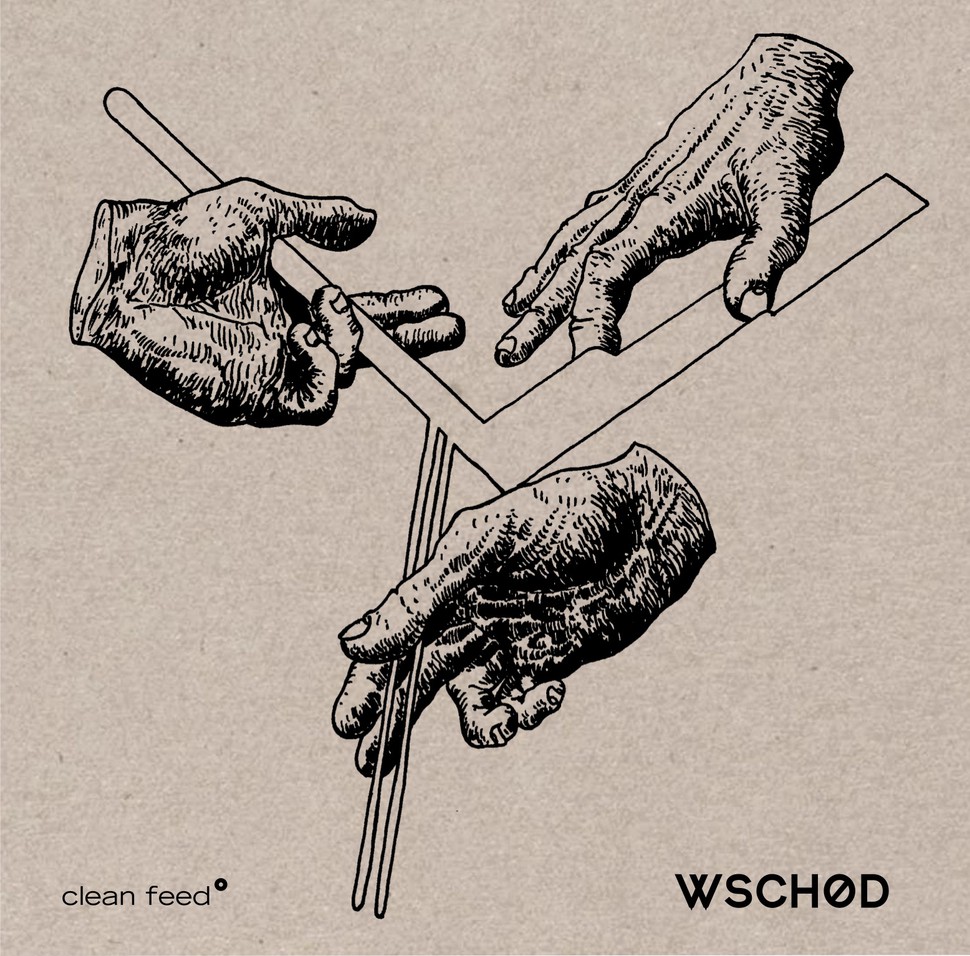Pianist Rodrigo Pinheiro (you know him mostly from his contributions to Red Trio) is one of the most requested presences of Portuguese improvisers in Poland, resulting in several co-operative groups with musicians from both countries. Wschód reunits him with the double bassist Zbigniew Kozera and the drummer Kuba Suchar to fulfill a purpose: to go beyond the established norms for the piano jazz trio. And they indeed do it, breaking with the pyramidal hierarchization of that instrumental format by the redefinition of the solo and accompaniment roles and by unnusual approaches to rhythm, harmony and melody. And yes, the drumkit also act as a piano, the piano drums and the bass sometimes doesn’t sound like a bass at all. The music is either subtle or energetic, exploring timbres and incorporating extensive techniques in a virtuosic playing always submited to the concretization of musical ideas. All the musicians are on the top of their respective scenes, and this is music only possible when its actors are in full domain of their instruments and the process of improvisation. Pinheiro’s skills joined him to the likes of Nate Wooley, John Butcher, Lotte Anker, Joe McPhee and Axel Dörner. Kozera played with Peter Brotzmann, Alexander von Schlippenbach, John Edwards and Steve Noble. Suchar had Joshua Abrams, Noel Akchoté, Rob Mazurek and Kazuhisa Uchihashi as partners. This gives you a clue of the marvels you’ll find inside…
- Musicians
Rodrigo Pinheiro (piano)
Zbigniew Kozera (doublebass)
Kuba Suchar (drums)- Credits
Recorded by Kuba Suchar in Wrocław, Poland on the 26th, 27th and 28th of May 2017
Mixed by Rodrigo Pinheiro, Zbigniew Kozera and Kuba Suchar
Mastered by Rodrigo Pinheiro
All music by Rodrigo Pinheiro, Zbigniew Kozera and Kuba Suchar
Design by Travasos
Drawings by Kuba Suchar- Release date
- Jan. 24, 2019
- Label
- Clean Feed Records - CF510CD
- Disc format
- CD
Reviews
It’s a highly kinetic group with the kind of detailed interaction that makes a commentator’s separation of parts a kind of clumsy afterthought. Piano cluster, drum roll and bass throb follow one another as if they might issue from the same hand. The interaction achieves the ineffable grace of the natural world, the density of foliage, the shock of colour on the wing, the rise and fall of compound and isolated sounds, whether burble or crack. As when embracing the natural world, the wonders are commensurate with the attention given. Among many free pianists, there’s a certain tendency to bombast, a trait which Pinheiro happily lacks. On portions of “White Grass” his focus is sufficiently devoted to the upper register as to suggest a toy piano, leaving the entire lower and middle registers free to his partners. The group’s collective voice rises through the rolling modal tremolos of “Gleam,” while the high whistling tones that conclude “Silent Frogs” link metal percussion, piano strings and bass harmonics. It’s a trio that one wishes continued opportunities.
Chamber jazz has provided an intriguing combination of abstract jazz and modern-classical experimentation, and Clean Feed should be applauded for giving the world a library of music by artists in this mold. Case in point, pianist Rodrigo Pinheiro's trio Wschod, which says that it strives to go beyond established norms. If by this, Pinhiero and company mean unique voicings, abundant technique and challenging yet fascinating group improvisations, they have succeeded.
The narrative is focused, rich in various, filigree sounds. It grows and piles up over time, yet still drowning in the sensual preparations on each of the instruments. When the musicians decide to leave this stage of improvisation and switch to more typical jazz phrasing, they do it with the grace of a ballerina. The piano flows straight from the keyboard, the double bass strings are plucked with an agile rhythm, and the whole is given the appropriate dynamics by focused drumming.
